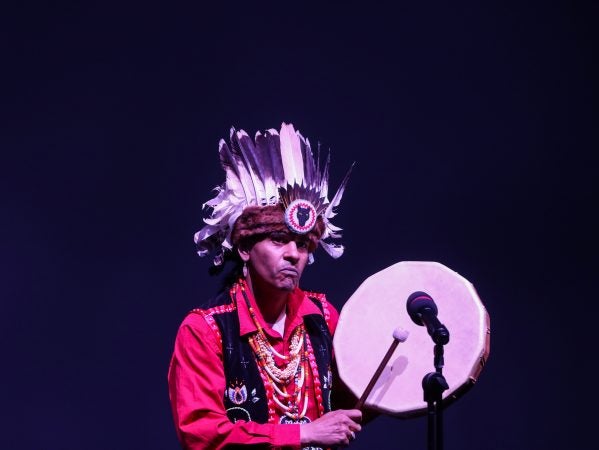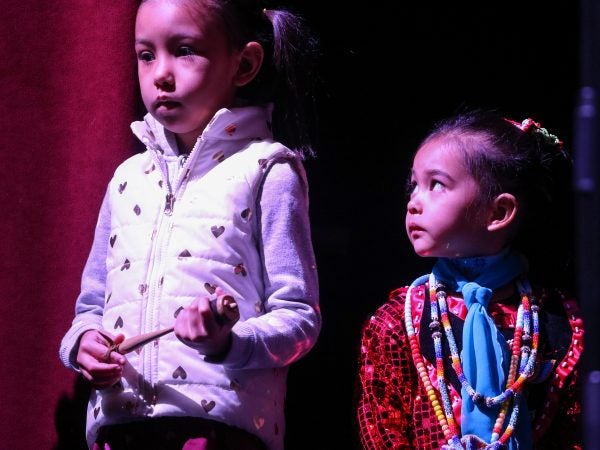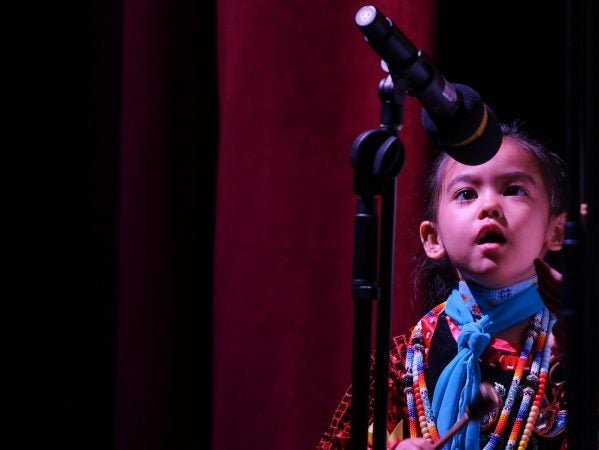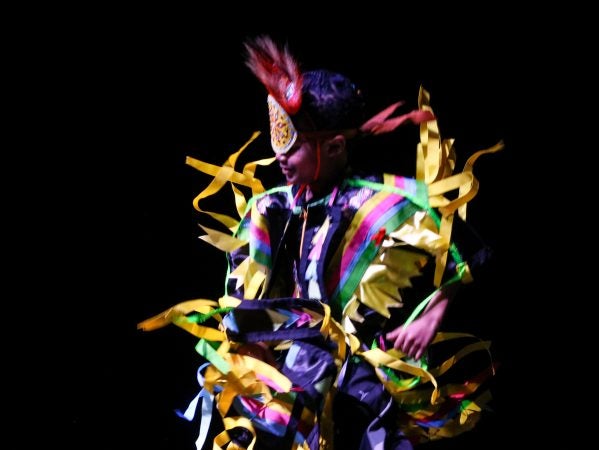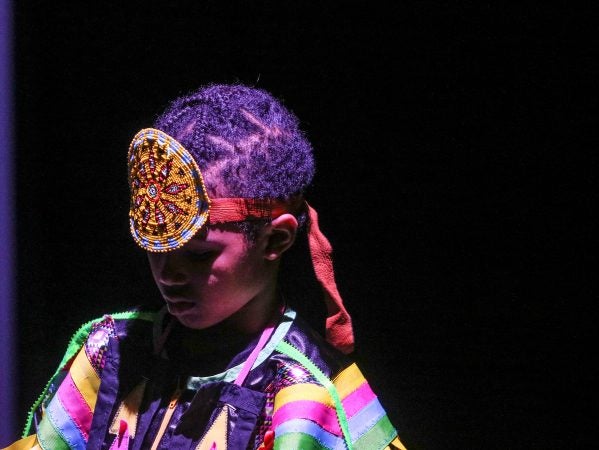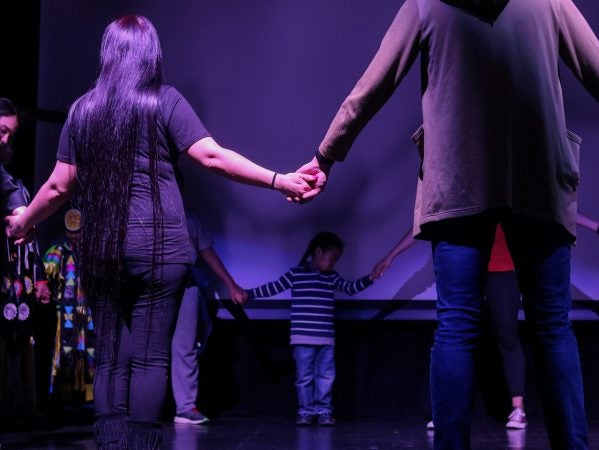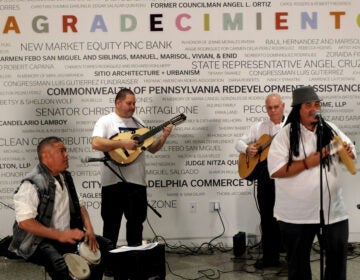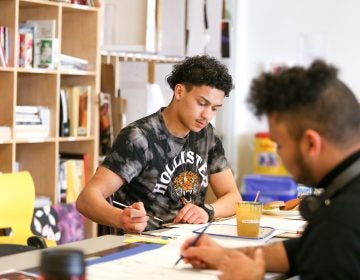From Santa Fe to Philly, We Are the Seeds wants to make Indigenous artists more visible
Arts nonprofit We Are the Seeds hosted its inaugural local festival Saturday at Taller Puertorriqueño to showcase the culture and creations of Native communities.
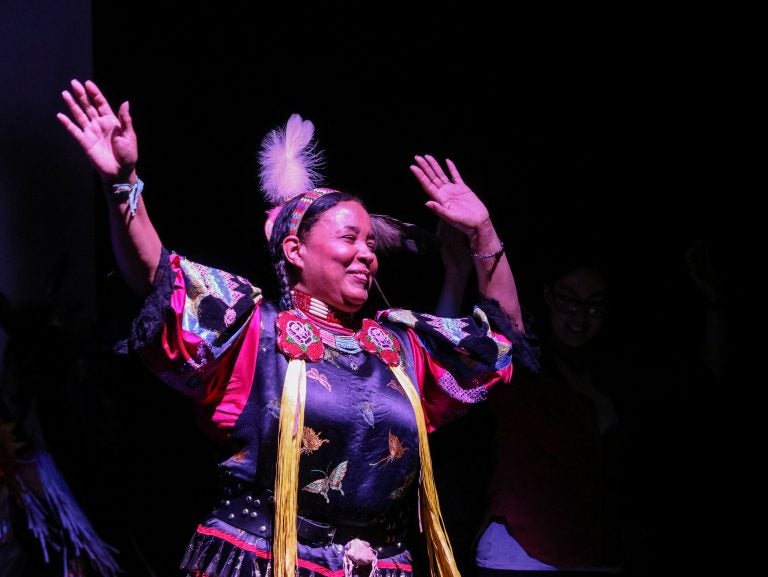
Vaughnda Hilton, founder of the indigenous dance troupe Native Nations Dance Theater, celebrates with audience members during a friendship dance (Angela Gervasi for WHYY)
When Paula Mirabal arrived at Taller Puertorriqueño in the city’s Fairhill neighborhood, she got excited: She recognized a woman waiting for the bus outside as Indigenous.
“I live in New Mexico,” Mirabal said. “You see Native people, people like me, around all the time. We are almost invisible here.”
Mirabal, along with Tailinh Agoyo, directs We Are the Seeds, a nonprofit based in both Philadelphia and Santa Fe that highlights Indigenous artists’ work through workshops, showcases, and sales events. The showcases had been hosted only in Santa Fe until Saturday, when Seeds presented its inaugural Philadelphia festival at Taller, an arts organization.
Mirabal said it was a big step to take the event out of Santa Fe, which she described as “a mecca for Native artists.”
Agoyo, who lives in and runs Seeds programming in Philly, began her collaboration with Mirabal when they worked for other Indigenous arts organizations together. They decided to branch out and create their own.
“It’s also about being able to work with our communities and help our communities survive,” Mirabal said. “It helps keep families together … the arts to sustain them. Put food on the table, basics really.”
Indigenous artists from New Jersey, New York and Rhode Island came to Saturday’s event to show some of their work, including necklaces, earrings, amulets, clothing and accessories, plus live recordings of musicians playing Native songs on instruments such as the flute.
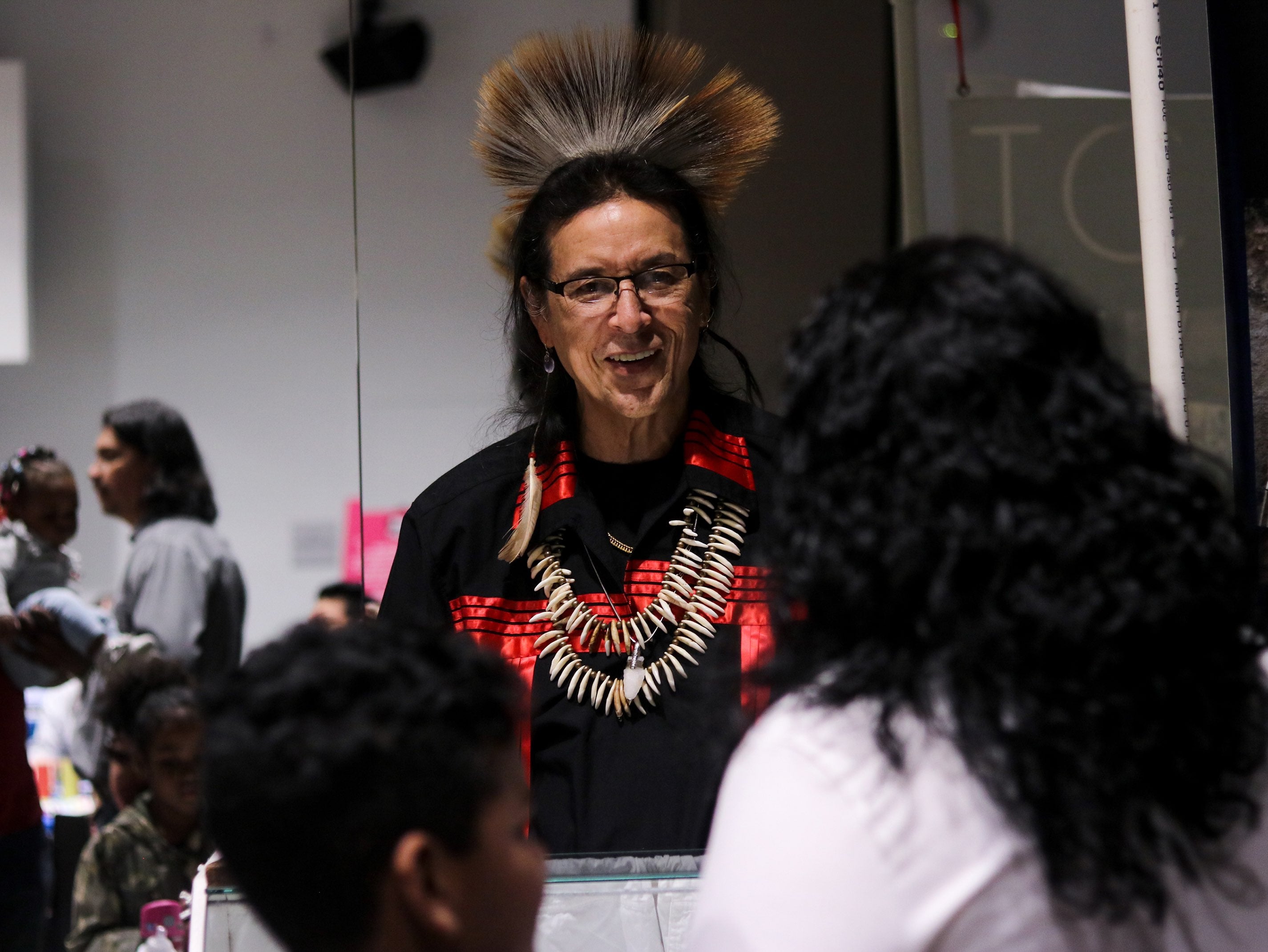
Roberto Mukaro Borrero of Long Island showed his handmade jewelry, which represents his Taíno roots. The Taíno people are native to the Caribbean Islands and South Florida.
Borrero also kicked off Saturday’s event with a call to the earth and sky in his Native language.
In addition to the jewelry, Borrero brought pamphlets and replicas of authentic Taíno artifacts to start conversations about their history.
A big part of We Are the Seeds is to highlight Indigenous’ artists work, which is often appropriated and mass-produced. Borrero knows what that’s like firsthand.
Under the Indian Arts and Crafts Act of 1990, Indigenous groups have some protections from the misrepresentation and appropriation of their artwork. Because the Taíno people are not a federally recognized tribe, Borrero said, some of those measures don’t apply.
“We have an issue with folks in China mass-producing our symbols for a fraction of the price,” he said. “When you’re mass-producing items out of a factory in China, you don’t really have the connection to the items of the culture, you’re just using the symbolism for profit, so it usually takes away some of the message from the pieces.”
Locally, We Are the Seeds also wants to focus on education. When Agoyo first moved here three years ago, she felt there was a lack of representation of Indigenous people.
“We are all living on Indigenous land,” Agoyo said. “This is supposedly the birthplace of America, and Indigenous people are not part of the conversation. If we are, it’s a side note.”
Native dancing was a big part of Saturday’s gathering. Wayahsti Richardson, who came to Taller from central New Jersey, performed a number of Native dances with his two daughters, Heart Rose, 5, and Star Bear, 4.
Richardson also used the performance as a moment to teach his audience about Indigenous arts and culture, discussing how the sound of hitting a drum represents the heartbeat of Mother Earth.
Mirabal and Agoyo agreed that this first festival in Philadelphia is a step in a new direction for We Are the Seeds. They hope to host more festivals in other cities.
“There’s this saying that goes, ‘They tried to bury us, and they didn’t know we are the seeds,’” Mirabal said. “We’ve always been here, we’ve always been the grounding to this planet. Everywhere we go, we plant seeds, working with communities and grounding one another in our traditions and cultures.”
WHYY is your source for fact-based, in-depth journalism and information. As a nonprofit organization, we rely on financial support from readers like you. Please give today.


